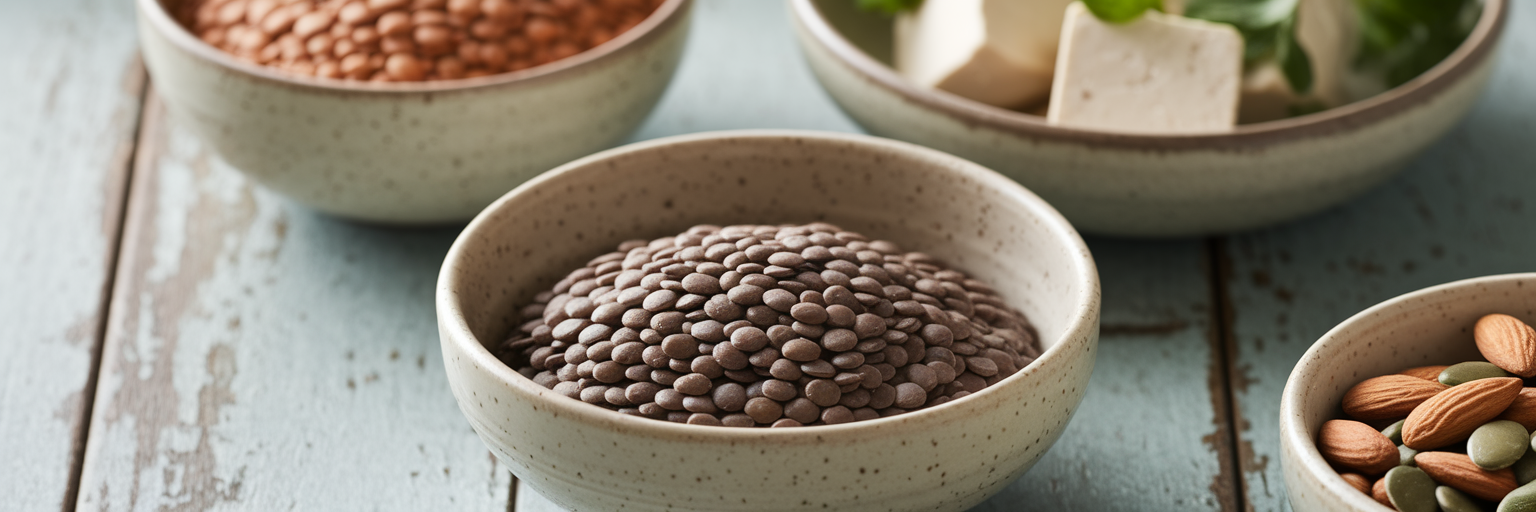Understanding Your Body's Changes During Menopause
Menopause is a natural chapter in every woman's life, yet it can feel like your body is suddenly playing by a new set of rules. This transition is primarily guided by a shift in hormones, most notably a decline in estrogen. It’s not a deficiency, but rather your body finding a new rhythm. If you’re experiencing things like unexpected hot flashes, night sweats that disrupt your sleep, or mood shifts and fatigue that you can’t quite explain, please know you are not alone. These are incredibly common experiences shared by millions of women.
We can all picture that moment of feeling overwhelmed by these changes, wondering what you can do to feel more like yourself again. The good news is that you have a powerful tool at your disposal: your diet. Making thoughtful food choices is one of the most proactive ways of managing menopause symptoms naturally. It’s about partnering with your body, giving it the nourishment it needs to navigate this transition with greater ease. Let's explore how you can use food to feel stronger and more vibrant.
The Foundational Role of a Plant-Based Diet

While protein is a key player, the benefits really begin with a broader shift toward a plant-centered eating pattern. A diet rich in fruits, vegetables, whole grains, and legumes helps calm systemic inflammation, which can often make menopausal discomfort feel more intense. Think of the difference between how you feel after eating a pastry versus a bowl of oatmeal with berries. One gives you a quick spike and crash, while the other provides steady, reliable energy.
This is because complex carbohydrates from whole foods help stabilize your blood sugar, which is essential for managing the energy slumps and mood swings that can accompany menopause. In contrast, highly processed foods and refined sugars can send your blood sugar on a rollercoaster, leaving you feeling drained. Furthermore, the abundant fiber in plant foods supports healthy digestion and contributes to an overall sense of well-being, which is something we can all appreciate.
This isn't just a hunch. In fact, research shared by The Menopause Society suggests that a low-fat plant-based diet for hot flashes can be quite effective, helping to reduce their frequency and severity while also supporting weight management. By building your meals on a foundation of whole plant foods, you create a supportive environment for your body to find its new balance.
Why Protein Becomes Your Best Friend in Menopause
With that plant-based foundation in place, let's focus on protein. During menopause, adequate protein intake becomes non-negotiable. It’s the essential building block your body relies on to stay strong, energized, and resilient. Think of it as the structural support that holds everything together while your internal landscape is shifting.
Stabilize Your Blood Sugar and Energy
We’ve all felt that afternoon slump or brain fog that makes it hard to focus. Protein is incredibly effective at slowing the absorption of sugar into the bloodstream. Pairing carbohydrates with protein at every meal helps prevent the energy spikes and crashes that can worsen fatigue and irritability, giving you more stable, consistent energy throughout the day.
Preserve and Build Lean Muscle
As estrogen levels decline, the body finds it harder to maintain muscle mass, a condition known as sarcopenia. Why does this matter? Muscle is metabolically active tissue, meaning it burns calories even at rest. Preserving it is key to maintaining a healthy metabolism and body composition. Prioritizing protein gives your body the necessary materials to repair and build lean muscle, helping you stay strong and active.
Support Strong, Healthy Bones
Bone health is another critical concern during menopause, as lower estrogen is linked to a decrease in bone density. While calcium and vitamin D are famous for their role in bone health, protein makes up a significant portion of your bone structure. Ensuring you get enough is fundamental to maintaining a strong, resilient skeleton. When considering your options, finding the best plant protein for women over 50 means looking for sources that are both complete and easily digestible.
Top Vegan Proteins for Hormonal Health

Making the switch to plant-based protein can feel like a big change, but it’s easier and more delicious than you might think. The key is to focus on whole-food sources that are packed with nutrients. Here are some of the best sources of vegan protein for menopause:
- Lentils
- Chickpeas
- Tofu and Tempeh
- Edamame
- Almonds and Walnuts
- Pumpkin and Chia Seeds
- Quinoa
These foods are not just about protein. They also deliver fiber, healthy fats, and essential micronutrients that work together to support your overall health.
The Power of Phytoestrogens in Soy
You may have heard about soy and its connection to menopause. Foods like tofu, tempeh, and edamame contain plant compounds called phytoestrogens. These compounds have a structure similar to the body's own estrogen and can gently interact with estrogen receptors. For some women, this may help ease symptoms like hot flashes by providing a mild, plant-derived balancing effect. Adding a serving of edamame to your salad or making a tofu scramble for breakfast are simple ways to incorporate these beneficial foods.
| Protein Source | Approx. Protein per Serving | Key Menopausal Benefit |
|---|---|---|
| Tofu (firm) | 22g per cup | Rich in phytoestrogens, supports bone health |
| Lentils | 18g per cup, cooked | High in fiber for stable blood sugar |
| Chickpeas | 15g per cup, cooked | Provides steady energy and supports digestion |
| Edamame | 22g per cup, shelled | Excellent source of phytoestrogens and fiber |
| Pumpkin Seeds | 12g per 1/4 cup | Rich in magnesium, which aids sleep and mood |
| Almonds | 7g per 1/4 cup | Provides healthy fats and supports bone health |
Serving sizes and protein content are approximate. These foods provide a combination of protein, fiber, and micronutrients that work together to support your body during menopause.
For those extra busy days, a high-quality vegan protein powder can be a lifesaver. A scoop of something like a rich chocolate vegan protein can turn a simple smoothie into a powerhouse meal. If you're curious about finding the right supplement for your needs, exploring some of the best protein powders we've reviewed can help you make an informed choice.
Building Your Plant-Powered Menopause Plan
So, how much protein do you actually need? While general guidelines suggest 0.8 grams of protein per kilogram of body weight, many experts, including registered dietitians at Plant-Based RDs, recommend that women in menopause aim for 1.0 to 1.2 grams per kilogram to effectively counteract muscle loss. For a 150-pound (68 kg) woman, that’s about 68 to 82 grams of protein per day.
A great strategy is to start your day with a protein-rich breakfast. This helps set your blood sugar on a stable path, providing sustained energy and reducing cravings later on. It’s also helpful to be mindful of foods that can trigger symptoms. Limiting these can make a noticeable difference:
- Added Sugars: Can cause energy crashes and contribute to inflammation.
- Excessive Caffeine: May trigger hot flashes and disrupt sleep in some women.
- Alcohol: Can interfere with sleep quality and act as a hot flash trigger.
Putting together a menopause diet plan US-style is straightforward. Here’s what a day could look like:
- Breakfast: A tofu scramble with spinach and a side of whole-grain toast.
- Lunch: A large salad with chickpeas, pumpkin seeds, and a lemon-tahini dressing.
- Snack: A handful of almonds and an apple.
- Dinner: A hearty lentil and vegetable curry served with quinoa.
Looking for more inspiration? You can find some delicious and easy vegan protein recipes that you'll actually crave to get you started.
A Holistic Approach to Thriving in Menopause

Achieving hormone balance with food is about more than just one nutrient. It’s about creating a holistic dietary pattern that nourishes you from the inside out. Alongside protein, be sure to include sources of calcium and vitamin D for bone health, as well as healthy fats from avocados, nuts, and seeds to support brain function and reduce inflammation.
Adopting this way of eating is an incredible act of self-care. It’s not just about managing menopause symptoms today, but about investing in your long-term health and reducing the risk of conditions like type 2 diabetes and hypertension. You are giving your body the tools it needs to thrive in this new phase of life.
If this article was helpful, feel free to share it with a friend who might benefit. Ready to explore more ways to support your wellness journey? Check out our other articles on our blog for more tips and insights.



